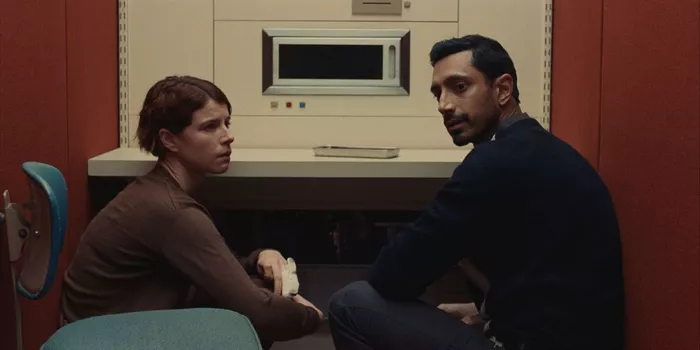Love, a complex and enigmatic emotion, takes center stage in “Fingernails,” a romantic dramedy that explores the lengths people will go to determine the authenticity of their relationships. Directed by Christos Nikou, the film introduces viewers to a bizarre world where couples can undergo a painful fingernail removal test to uncover the truth about their love. But while the concept offers intriguing possibilities, “Fingernails” falls short of its potential, hindered by excessive body horror and a missed opportunity to delve deeper into its themes.
The story revolves around Anna (Jessie Buckley), who is content in her long-term relationship with Ryan (Jeremy Allen White). Having tested positive in the past, Anna believes she has found her ideal partner. However, when she joins the Love Institute, where the tests are conducted, her encounters with instructor Amir (Riz Ahmed) challenge her perception of love. Anna begins to question the validity of the test and the nature of her own feelings.
Jessie Buckley delivers a standout performance as Anna, infusing the character with charm and comedic timing. Known for her roles in intense dramas, Buckley effortlessly embraces the film’s lighter moments, utilizing physical comedy to great effect. Riz Ahmed brings a captivating presence to the screen as Amir, capturing the longing and vulnerability that underlies the film’s unconventional premise.
Despite the strong performances, “Fingernails” falters with its excessive use of body horror. The repeated depictions of the fingernail removal process verge on gratuitous, evoking discomfort rather than enhancing the emotional impact. What could have been a thought-provoking exploration of love’s complexities instead becomes a superficial indulgence in shock value. The body horror elements detract from the film’s potential depth, ultimately leaving viewers with a sense of unease and a missed opportunity for substantive storytelling.
Within the film’s exploration of loneliness and desire, there are intriguing concepts that touch upon the limitations of scientific tests in measuring genuine emotion. The fingernail test fails to account for long-term compatibility and the intangible aspects of love. Yet, “Fingernails” falls short of fully exploring these ideas, leaving them underdeveloped and unanswered. The lack of a firm resolution or guiding perspective hampers the pacing and leaves the film feeling longer than its actual running time.
At its core, “Fingernails” seems to posit that love is an elusive and unpredictable force that defies scientific measurement. While this notion holds some truth, the film’s exploration of it lacks the necessary depth to truly engage viewers. The absence of a compelling narrative and a strong viewpoint on the subject matter weakens the impact, leaving audiences wanting more.
In the end, “Fingernails” showcases the talents of its leading actors and hints at interesting thematic territory. However, its overemphasis on body horror and its failure to fully interrogate its concepts prevent it from reaching its full potential. Director Christos Nikou seemingly aims to convey the uncertainty of love, but the result is an underwhelming experience that lacks the necessary depth to resonate with audiences.

